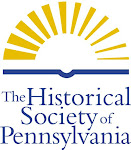I started looking at Series 3, Samuel Chew (1737-1809), beginning with his account records. Throughout those files, I found many receipts that mentioned slaves from his plantations in Maryland. He owned five plantations, from all the accounts I have seen: Frisby's Meadows, the Great Plantation, Rich Neck, Swan Point, and Veazey Farm. All of them seem to have been located in Cecil County, Maryland, and there appear to have been 100+ slaves who lived on these farms. In the account records, there are bills from doctors who attended to "the people," as they are often called in the papers. There are many mentions of midwives, and lists of various medical treatments provided (usually the Latin names for herbs and compounds made into tinctures, pastes, and other preparations).
Some of the most detailed records about the enslaved people on Samuel Chew's farms are from the inventories of his estate after his death in 1809. Every time I look at these kinds of records, I am struck by the fact that people's lives were given monetary value, based on their age, their physical ability, and other factors. There is something about seeing these lists of property that really drives home the view of slaveholders, making it clear how they could continue to own other human lives and profit from their trade.


These pages are from an inventory registered in 1812. It lists all of the slaves who belonged to Samuel Chew's estate. They are listed by name, with the name of the person to whom they were sold and the price for which they were purchased.
These inventories provide extensive details about how the Chews lived. For instance, in one inventory, the total value of the estate is listed as $42800.10, which in today's dollars would be over 3/4 of a million dollars. There are lines in these inventories that detail all types of property, including meat, sugar, fabric, and other common items.
In the inventory below, Benjamin Chew Jr., who serves as the executor of Samuel's estate, lists "Eight single rose blankets, which as the black people on the Farms in Cecil were in want of bed clothing have been delivered unto those who needed it. (value: $16.00)"; and later, "1460 lbs. Bacon Sent from Chester Town to the Farms in Cecil where the black people were out of meat except what was reserved for the use of the family remaining at Chester Town + Except 25 hams sent to the residuary legatees in Philadelphia. (value: $183.50)
On the second page shown here, Benjamin describes some of the slaves: "For the Negro man named Dick, who being very sickly has been permitted under the discretion given to the Executor in the Will, to go at large, hiring himself when he is able to work & liable to be maintained out of the Estate when he shall be too infirm to take care of himself appraised at $75.00." The next entry is even more wrenching: "For a child Called Harriett who died $5 a grey horse that died early in Summer 70$"


This collection is full of documents like these, and I imagine that these documents could open up a lot of doors for African-American genealogists, as well as scholars who are interested in the history of slavery in the Mid-Atlantic region.






